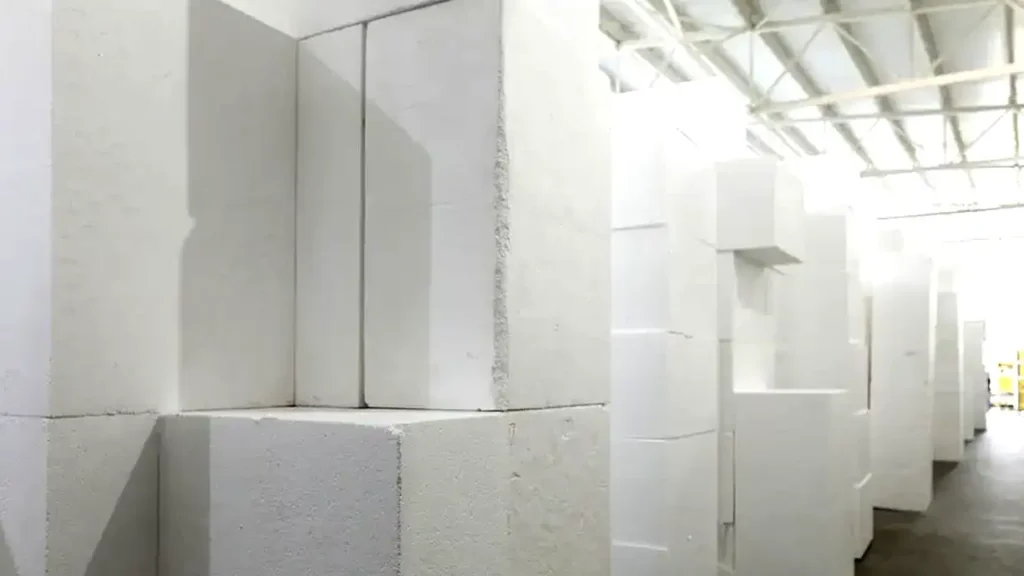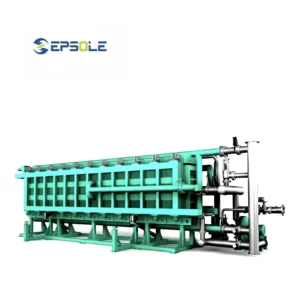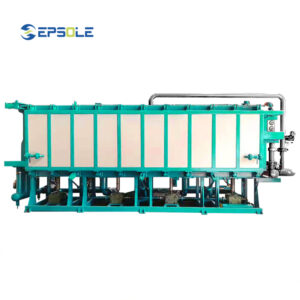Expanded polystyrene (EPS) is a versatile material with various applications in construction, packaging, and more. Understanding the different types of expanded polystyrene can help you choose the right product for your specific needs.
In this comprehensive guide, we’ll delve into the various types of expanded polystyrene, their characteristics, uses advantages, and environmental considerations.
What Is Expanded Polystyrene?
Expanded polystyrene (EPS) is a lightweight, rigid, and durable material known for its excellent insulation properties and versatility. It is derived from polystyrene beads that expand when exposed to steam, resulting in a cellular structure that consists of 95% air.
This unique structure gives EPS its outstanding thermal insulation, shock absorption, and buoyancy properties.
Types of Expanded Polystyrene

Expanded Polystyrene (EPS) is a versatile, lightweight plastic foam renowned for its insulating and cushioning properties. While often thought of as just one material, EPS actually comes in several variations, primarily distinguished by their density and manufacturing process.
Understanding these different types is crucial for selecting the right foam for applications ranging from construction insulation and geofoam to protective packaging and disposable consumer goods. This allows users to maximize both performance and cost-effectiveness.
1. EPS Foam
EPS foam, also known as expanded polystyrene foam, is one of the most common types of expanded polystyrene. It is lightweight, rigid, and resistant to moisture, making it ideal for various applications such as insulation, packaging, and lightweight fill in construction.
EPS foam is manufactured by expanding polystyrene beads using steam, then molding the expanded beads into desired shapes and sizes. It is available in different densities and thicknesses to suit different requirements.
2. EPS Packaging
EPS packaging is widely used in the packaging industry due to its excellent protective properties. It provides cushioning and shock absorption, making it ideal for protecting fragile items during shipping and transportation.
EPS packaging comes in various forms, including molded foam inserts, sheets, and blocks. It is lightweight, cost-effective, and recyclable, making it a preferred choice for packaging applications.
3. EPS Insulation
EPS insulation is used extensively in the construction industry for thermal insulation purposes. It helps to reduce heat transfer and improve energy efficiency in buildings, resulting in lower heating and cooling costs.
EPS insulation is available in the form of rigid boards, panels, and blocks. It can be installed in walls, roofs, floors, and foundations to provide effective thermal insulation and moisture resistance.
4. EPS Molding
EPS molding involves shaping expanded polystyrene foam into custom shapes and designs using molds and cutting techniques. It is used in various industries, including automotive, marine, and manufacturing, for producing lightweight and durable components.
EPS molding offers design flexibility, cost-effectiveness, and rapid production capabilities. It allows for the creation of complex shapes and intricate details with high precision and consistency.
5. EPS Geofoam
EPS geofoam is a lightweight fill material used in civil engineering and construction projects. It is used to reduce soil settlement, alleviate lateral pressures, and provide slope stabilization in roadways, embankments, and retaining walls.
EPS geofoam is lightweight, inert, and resistant to moisture and chemicals. It offers significant advantages over traditional fill materials such as soil and gravel, including reduced construction time, lower transportation costs, and improved performance.
How to Choose Suitable EPS?
Selecting the correct type of Expanded Polystyrene (EPS) foam is essential for ensuring your project’s success, whether for insulation, construction, or packaging. The optimal choice depends heavily on the required density, strength, thermal performance, and specific application environment. You must match the material’s properties to the demands of the job to achieve both cost-efficiency and durability.
Key Factors for EPS Selection
Fire Retardancy and Code Compliance: Most building codes require foam plastics to meet specific fire-retardant standards. Always verify that the EPS foam you choose meets the required ASTM or UL standards for fire resistance in your jurisdiction. For interior applications, ensure the foam has an appropriate thermal barrier applied over it to comply with safety regulations and building codes.
Density and Compressive Strength: The density of EPS (measured in pounds per cubic foot) directly correlates with its compressive strength. Higher density means the foam can withstand greater loads without deforming. Choose a higher-density EPS like Type IX (high-strength) for applications requiring structural support, such as under concrete slabs, footings, or heavy storage floors. Lower-density types suffice for non-load-bearing insulation.
Thermal Resistance (R-Value): The R-value measures the foam’s ability to resist heat flow; a higher R-value means better insulation. While EPS is an excellent insulator, the R-value is slightly affected by density. For maximum energy efficiency in walls, roofs, or foundations, select an EPS that provides the necessary R-value per inch to meet local building codes and thermal performance goals for the structure.
Application Environment (Moisture): All EPS can absorb a small amount of moisture over time, which can slightly reduce its insulating performance. For applications frequently exposed to moisture, like below-grade exterior foundations or roofing systems, consider a closed-cell, high-density EPS. This helps minimize water absorption, preserving the foam’s integrity and long-term thermal resistance in damp conditions.
How is EPS foam manufactured?
EPS foam is manufactured by expanding polystyrene beads using steam, then molding the expanded beads into desired shapes and sizes. The process involves heating the polystyrene beads in a mold, which causes them to expand and fuse, forming a cellular structure.
What are the advantages of EPS packaging?
EPS packaging offers several advantages, including excellent cushioning and shock absorption properties, lightweight and cost-effective design, recyclability, and thermal insulation properties.
Is EPS insulation environmentally friendly?
EPS insulation is environmentally friendly and sustainable. It is recyclable and can be reused in various applications, reducing waste and environmental impact. Additionally, EPS insulation helps to improve energy efficiency in buildings, reducing carbon emissions and greenhouse gas emissions.
Conclusion
Expanded polystyrene (EPS) offers a wide range of benefits and applications across various industries. Whether you need insulation for your home, protective packaging for your products, or lightweight fill for construction projects, EPS has you covered.
By understanding the different types of expanded polystyrene and their unique properties, you can make informed decisions and choose the right product for your specific needs.
Expanded polystyrene (EPS) offers a wide range of benefits and applications across various industries. Whether you need insulation for your home, protective packaging for your products, or lightweight fill for construction projects, EPS has you covered. By understanding the different types of expanded polystyrene and their unique properties, you can make informed decisions and choose the right product for your specific needs.
Ready to explore the possibilities with expanded polystyrene? Contact us today to learn more about how EPS can benefit your project or business!


